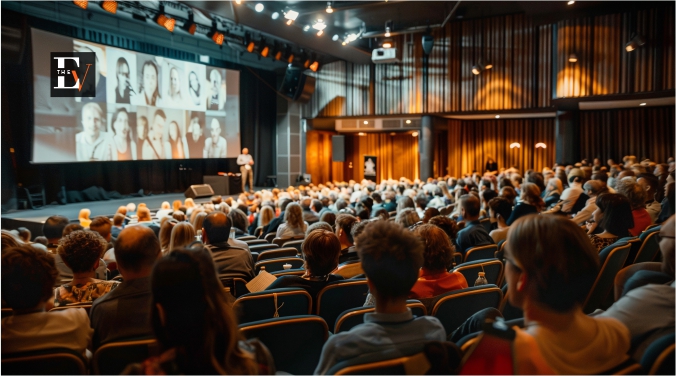Beyond the Podium
Over many years, keynote speakers have played a pivotal role in shaping the cultural and business environment from which leadership and innovation flow well beyond the event attendance. The speakers are usually of authority or leaders in their fields and help give new angles to big issues, challenge mainstream thinking, or inspire action in technology, politics, arts, and economic fields.
- Cultural Change Catalysts
The vibrancy makes keynote speakers facilitators of discussions about cultural identity, diversity, and inclusion. Given the great tradition of the history of the continent with its diversity of different traditions, languages, and social standards, keynote speakers have become significant for cross-cultural understanding and dialogue on tolerance and cooperation. In Europe, we find TEDx and European Cultural Forum, always calling lecturers to discuss contemporary social issues – migration, climate, multiculturalism – towards a more heterogeneous European identity.
Speakers at such events may come forth and change public mindsets to consider once and for all causes like gender inequality, immigration, and social justice. For example, information designers like Giorgia Lupi, speak their minds on the necessity of better integration of technology with human needs, having empathy in design and data analysis as well as their impact on cultural narratives surrounding technology and life.
- Business Innovation and Thought Leadership
Keynote speakers so far remain the biggest drivers in inspiring new thoughts and business innovations in the world of business in Europe. Europe harbors a whole range of industries, from financial services in London to innovation in automotive, Germany. Keynote speakers at business conferences include Web Summit and DLD (Digital-Life-Design) assembling this kind of expertise in areas of technology, entrepreneurship, and finance to share edge-of-the-line insights.
Sharing knowledge of emerging trends like AI, blockchain, and sustainability, for example, European businesses are induced into adapting and growing by the speakers. Companies are especially encouraged to undertake digital transformation or embrace sustainable business models mainly due to climate goals by the European Union.
Heavyweights like Microsoft CEO Satya Nadella, and Spotify CEO Daniel Ek talk at various events across Europe, with the challenge to entrepreneurs to drive the boundaries ahead in innovation and question traditional models. More often than not, the agenda of these speakers carries this message forward and encourages small businesses and large companies to embrace the growth mindset and invest in technologies that disrupt their industries.
- Building Leadership and Empowering Entrepreneurs
In Europe, keynote speakers also have a major role to play in the development of leadership and entrepreneurship. Business education forums and entrepreneurial summits held in different forums, such as the European Business Summit and Startup Europe Summit, feature industry leaders and academics that enlighten on what is required to lead in this increasingly fast-moving economic environment.
Other prominent speakers included Richard Branson and Christine Lagarde, who had inspired European entrepreneurs with the potential to scale businesses, get access to capital, and lead through crises. Their speeches reflected resilience, innovation, and value beyond the touch of social entrepreneurship and corporate responsibility.
- Shaping Policy and Economic Discourses
Europe’s business landscape is inextricably linked with policy decisions, and keynote speakers at economic forums shape public policy and economic strategy. Most of the major economic forums-such as the European Business Forum or World Economic Forum’s Europe-focused events include speakers who influence policymaking, especially on topics such as trade, regulation, and climate change policy.
For instance, in keynote speeches, former European Central Bank President Mario Draghi spoke about the stabilization of economies as well as policies for economic growth. Similarly, Nobel laureates are considered thought leaders who speak on how governments can foster innovation ecosystems hence having a direct impact on European economic policies.
- Shaping Future Generations and Lifelong Learning
Key speakers also play an important role in education. Platforms like this go beyond the curriculums in academic institutions to the whole life-long learning philosophy. From the educational forums such as those of the European Business Schools conferences and the European Association for International Education, keynote addresses always focus on innovation in education, and the development of skills, as well as cross-border collaborations.
This is because speakers give a call to professionals and students to be attentive to the needs of the global market. In this regard, Sir Ken Robinson is a good example since his keynote speeches have impressed the education systems to urge a more creative and adaptable curriculum in schools in Europe.
End Note
A keynote speaker in Europe is more than just an influencer at a guest event but is the one to carry ideas long after the date of the event. Their ideas resonate and cross beyond industries and borders to influence cultural narratives, business strategies, and policy decisions.
Answering local challenges in concert with global opportunities, these speakers can help ensure European organizations and governments have the skills to navigate the complexities of the modern world and look beyond a podium for ongoing inspiration and action.






